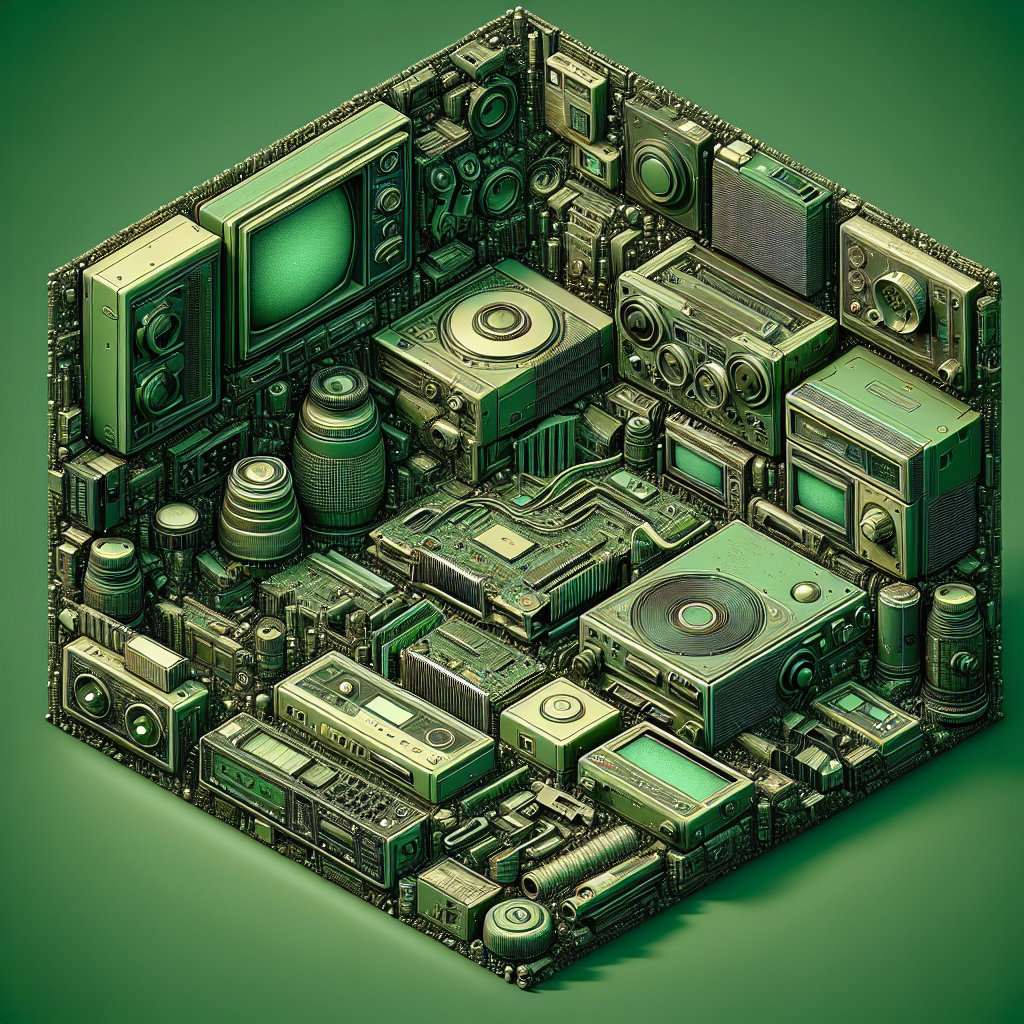Blog Ecobraz Eigre

Rare Electronics That Made History and Still Show Up for Recycling
Introduction to Rare Electronics in Recycling
Technological evolution over the past decades has brought to the market various electronic devices that marked an era. Many of these devices, now considered rare electronics, continue to appear in recycling processes, requiring special attention in their treatment due to their unique composition and potential for pollution. Understanding the importance of these pieces and the care required in their disposal is essential to optimize electronic waste management and ensure compliance with current environmental regulations.
Examples of Rare Electronics in Recycling Processes
Among the rare electronics that still appear for recycling, notable examples include old fax machines, rotary dial phones, CRT monitors (cathode ray tube), and early models of personal computers. These devices contain electronic components and metallic materials that, despite being obsolete, can be recycled to recover valuable raw materials such as precious metals and special plastics.
Environmental Impacts and the Need for Proper Disposal
The presence of these electronics in the waste chain requires governmental and industrial attention due to the potential release of toxic substances, such as lead and mercury, frequently found in CRT monitors and other old components. Law nº 12.305/2010, which establishes the National Solid Waste Policy, highlights the shared responsibility for the proper disposal of these wastes, promoting reduction, reuse, and recycling of electronic materials.
Applicable Standards and Regulations
The proper handling of rare electronics is especially regulated by the National Information System on Solid Waste Management (SINIR), as provided in Decree nº 10.936/2022, which regulates the National Solid Waste Policy. This system aims to ensure the control and tracking of electronic waste throughout the national territory, encouraging sustainable and responsible practices.
Recycling Processes and Technical Challenges
The recycling of these devices involves specific steps, such as manual disassembly to segregate components, chemical treatment to recover metals, and environmentally appropriate disposal of hazardous fractions. The complexity of these processes demands advanced technologies and skilled labor, reaffirming the importance of specialized electronic waste collection, which can be scheduled through the Ecobraz website.
Security in Digital Media Sanitization
Another fundamental aspect in treating this waste is ensuring information security, especially when disposing of storage units such as hard drives. Secure sanitization of HDs and other media must follow strict protocols to prevent leakage of sensitive data, as recommended by best practices available on specialized platforms. Sanitization services can be scheduled with experts via the Ecobraz link.
Conclusion
Rare electronics represent a significant fraction of electronic waste collected for recycling and require differentiated technical and regulatory attention due to their composition and potential environmental impact. Proper handling, combined with adherence to current legislation and the use of appropriate technologies, ensures the sustainability and safety of the processes involved, promoting environmental and social benefits in managing this waste.

Deixe um comentário
O seu endereço de e-mail não será publicado. Campos obrigatórios são marcados com *